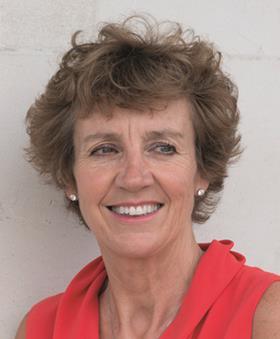I’m sure I am not alone in feeling that spring comes around quicker each year; once again Mipim is only just around the corner.

However, in the conversations I’ve been having recently, there is talk that 2016 will be more uncertain than previous years. Whether it’s the debate on Brexit, oil prices and interest rates, investor caution or a market plateau, it is widely felt that more challenging times are ahead.
In changing times, companies need to build in resilience, creativity and flexibility in order to succeed. Different leadership skills will be required - enter the ‘post-heroic leader’, described as “the quieter, engaging team player with an emphasis on collaboration rather than individual success”. I can already see these traits in the people now leading some of our biggest clients. Characteristics such as flexibility, empathy, creativity and collaboration will become more essential if we are to be considered trusted advisers.
What is interesting is that these ‘new skills’ are the ones women in particular can bring to the table. This is why diversity remains stubbornly at the top of our agenda not only at CBRE but also in the conversations I have across the sector. Simply, we have to attract and then nurture more women into our businesses so we have the combination of skills to position for future success. It’s good for business and is proven to deliver better results, as research from McKinsey and others reveals.
I know that for many in property, gender equality no longer seems a problem. But as we mark International Women’s Day, the sad truth is we are still some way from parity. As Property Week’s editor Liz Hamson wrote two weeks ago, inequality is stubbornly persistent. The gender pay gap in property is at 25.9%, far wider than the UK average of 20% (ONS). These figures are disappointing and, to me anyway, surprising, given the efforts we have been making to create a more level playing field. Despite the best efforts of the RICS, less than 14% of qualified surveyors in the UK are women. While I am proud that at CBRE, we are some way ahead of this, with women making up a third of our fee earners, it’s still not equal representation.
There are two steps that need to be taken to achieve parity. First, we need to remove the barriers that exist for women to enter our sector. At CBRE we have expanded our apprenticeship programme, which has successfully brought some young women as well as men into the firm. We are delivering a sustained schools programme, which involves some of our younger women going into schools and making girls aware of what a career in real estate can offer. Furthermore, CBRE has reached a near-50:50 gender split on our graduate intake over the past three years. The second step is a concerted focus on inspiration and retention so that talented women (and men) can realise their potential and enjoy long, successful careers.
This is why the CBRE Women’s Network was devised 10 years ago and why I am one of the founders of Real Estate Balance, a recent initiative launched by a group of industry leaders. Our aim is to achieve a greater gender balance at board and executive level by supporting the development of an enduring female talent pipeline in a practical way. At CBRE, a quarter of those at director level are women, and it is this next generation who will hold the key to improving gender representation at senior level.
We know that when the market is booming, it is easier to do well. When the market toughens, there will always be a flight to quality and to those who most ‘get’ the needs of the client. This is why it is so important to bang the drum for gender equality, and the skills it brings to the property industry that will future-proof our businesses. We have achieved so much, but as the statistics show, there is still a long way to go.
Sue Clayton is executive director at CBRE






























No comments yet